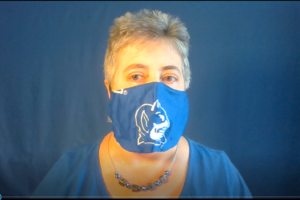
How to Get Good Sleep During Times of Transition
Sleep is a critical part of our health and well being. But for millions of people, rest isn’t easy or consistent.
Studies show adults need at least seven hours of sleep a night. Many people don’t get enough rest. Some wear it as a badge of honor, working hard hours and skimping rest. Many of us don’t prioritize sleep and give it the weight it deserves. Factors in your life, such as children, may also impact your sleep.
Life transitions are stressful, and stress is a significant cause of not sleeping well. Yet during times of change, we need our sleep more than ever. So how do you accomplish that? Here are some tips gathered from sleep experts:
1. Prioritize sleep. Rest is how our bodies heal themselves. Sleep gives us the energy to tackle the next stress-filled day. Reframe your way of looking at bedtime to make it a critical part of your life.
2. Remember, everyone is different. I have friends who make me feel silly about needing nine hours of sleep a night. But I know I think and operate better if I get it. Some people feel just fine with five hours a night. I have a friend who prefers 10. Don’t worry about everyone else; you do you.
3. Create a routine. Sleep experts will tell you this is where it starts. Select a time you want to get up every day and set the alarm — 7 days a week. (Yes, even on weekends!) Go to bed at the same time every night. After a week or, you may adjust as you discover you need more or less sleep based on how you feel. Another approach is to go to bed at the same time and see what time you wake up every morning. But you have to do that for at least a week to allow your body to show you how much sleep it needs. A vacation is an excellent time to experiment with this since you may not have any pressing reason to be up at a specific time.
The next part of your routine is your activities just before bed. About an hour before your chosen sleep time, start winding down. Put on pajamas or loungewear. Wash your face, brush your teeth. Do something calming, such as reading or journaling. Avoid screens if possible.
4. Ditch the TV. Sleep experts will also tell you the No. 1 way to get better sleep is to remove the TV from your bedroom. The only thing you should do in your bed is sleep (though intimacy with your partner is OK). Watching TV or doing other things in your bedroom confuses your body. Don’t work in your bedroom, either. Reframe your mind to think of that room as the place you sleep; eventually, your body will start feeling sleepy as you enter. Bonus: Studies show couples with no TV in their room have a better relationship.
5. Avoid caffeine after lunch. Caffeine can stay in your system for several hours after you’ve consumed it and can impact the longevity and quality of your sleep. How long it remains with you depends on your body chemistry. You may not necessarily still feel like you have caffeine in your system, but it’s there and can affect you. (Note that decaf coffee still contains some caffeine, as do many teas.)
6. Limit alcohol. While alcohol can help you relax, too much of it will disrupt your sleep. Try to finish your beverage before or with dinner. Sip on water for the rest of the evening.
7. Exercise. Regular exercise has myriad benefits, as you’ve heard. High-quality sleep is one of them, as is reducing stress. The key is to complete your exercise routine at least three hours before your bedtime so that your body has time to cool down and relax. Exercise will also help you during times of great stress.
8. Find ways to reduce your transition stress. Janice and I have both talked about meditation, journaling, nature walks, and more. Times of transition cause a lot of stress that can lead to your brain chattering away at night. You may have to try different things to find out what works for you. The point is to let go of all those worries.
9. If you’re in bed but can’t sleep, get out of bed. You don’t want to associate your bed with being awake. You may think you can just try harder, and you’ll fall asleep. However, sleep doesn’t work that way. In a sleep story in the Calm meditation app, Dr. Orma explains this. Your body falls asleep when you aren’t thinking about it; you have to let go. So if you’re not sleeping or if you wake up in the middle of the night and can’t go back to sleep, get up. Read a book. Enjoy the free time. Avoid TV and your phone. If you are worrying, write all your worries down on a piece of paper or in a journal. Write freely, pouring everything and anything onto the page as if you’re a cup that you’re emptying. Go back to bed when you start to feel sleepy.
10. Seek help. During times of transition, you might need help with these tactics or to discover new ones. Reach out to a therapist, an organizing coach, a sleep expert, or a person related to the specific transition you’re experiencing. Sometimes, that extra help will take a load off mentally and allow us to feel like we have a handle on life — giving us the space to go to sleep.
Have you experienced times of poor sleep? What helped you?
Tag:sleep



